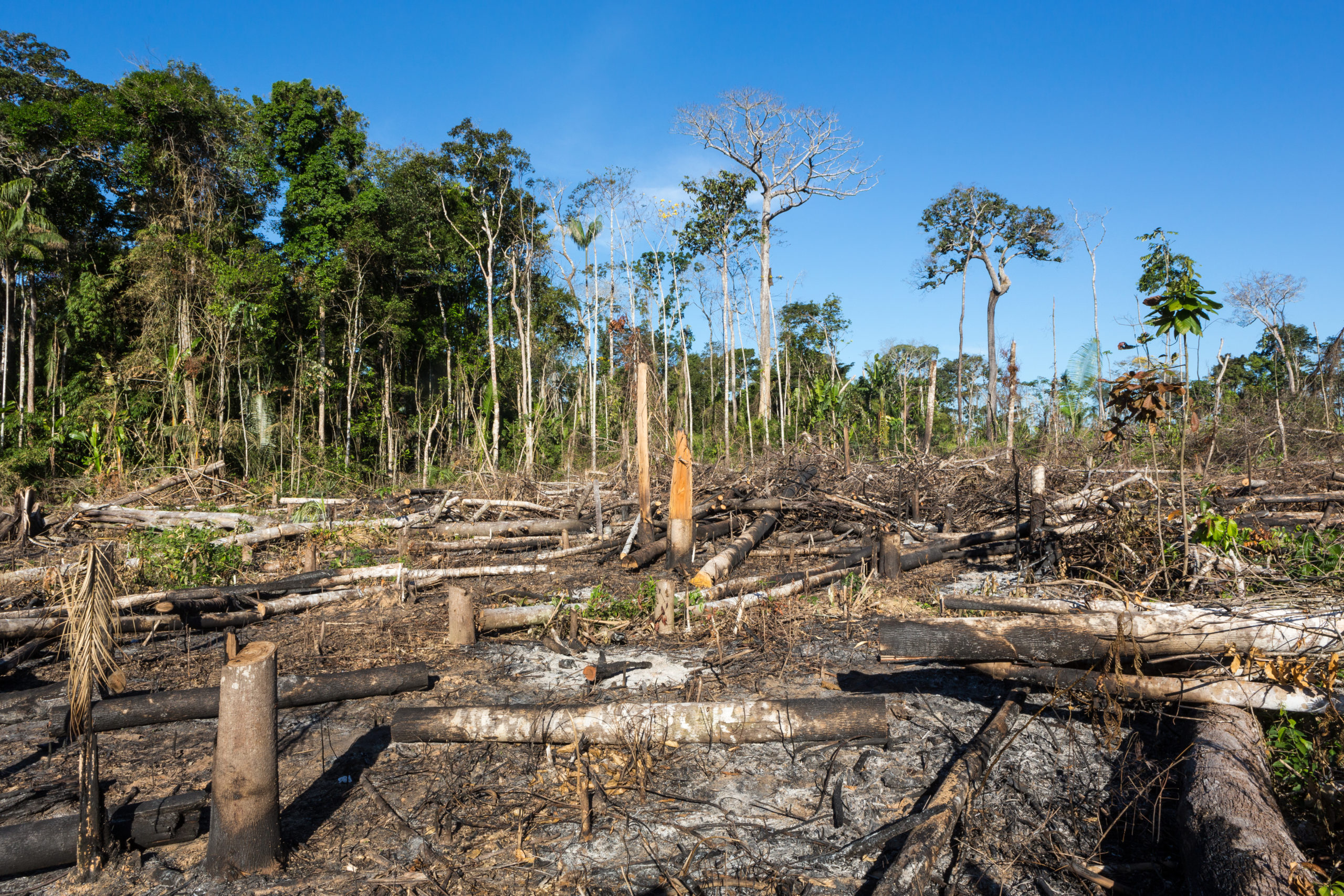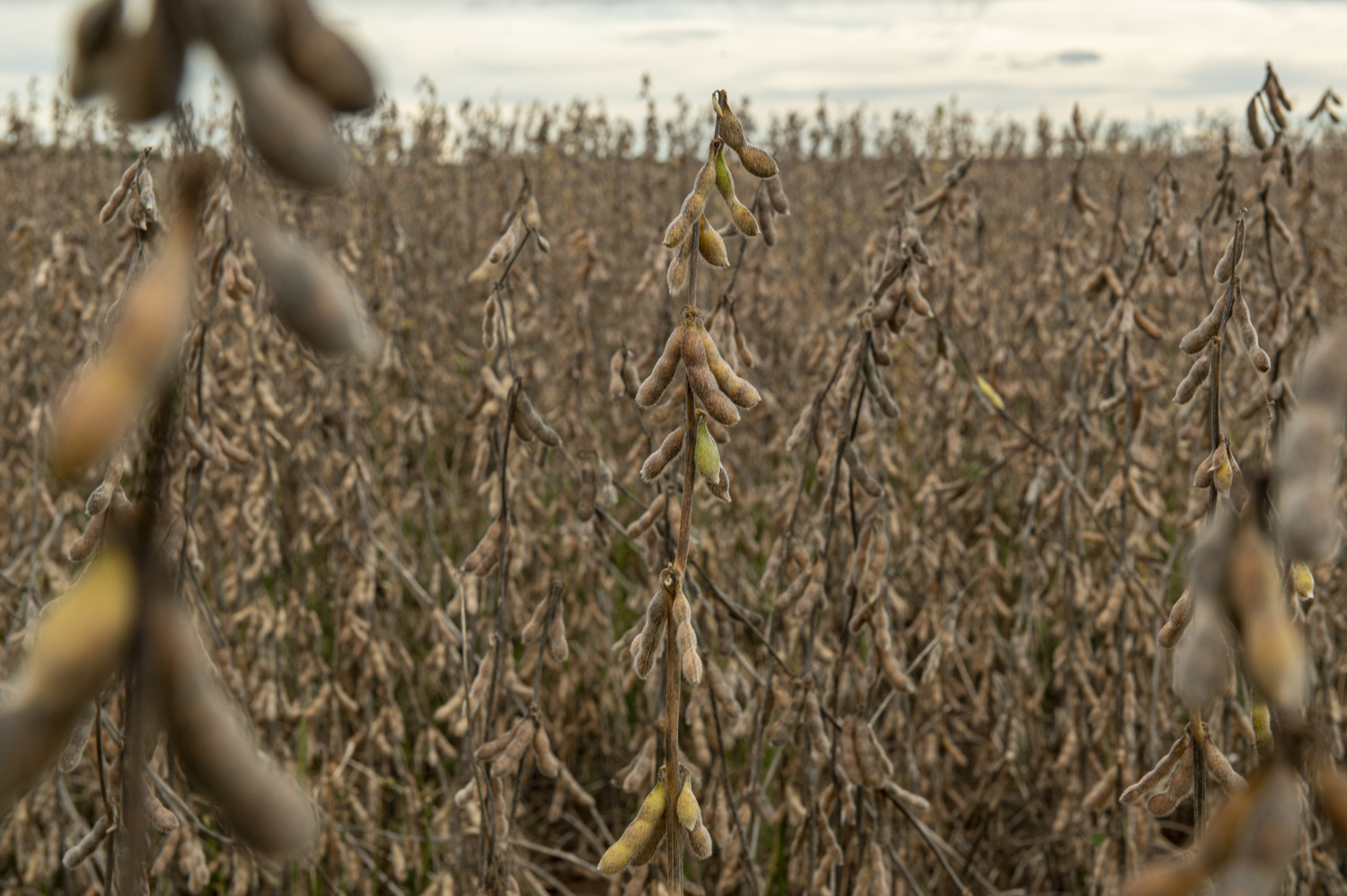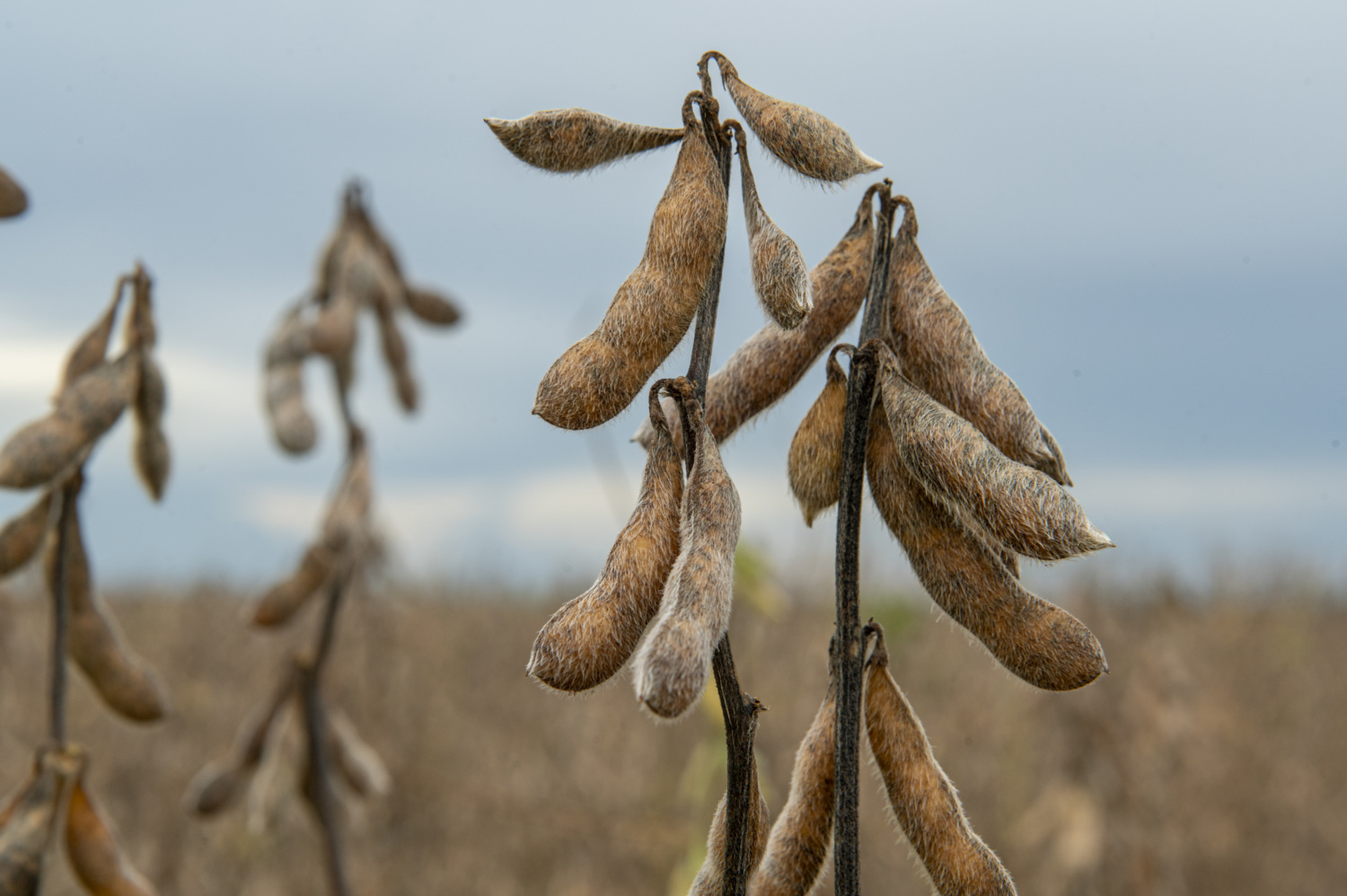
Mighty Earth finds nearly 60,000 hectares of recent soy-driven deforestation in the Amazon and Cerrado
New Rapid Response report highlights deforestation hotspots in the two biomes and reveals risks to seven soy traders, including Bunge and Cargill
Read the report here
Read in Portuguese here
A new study by Mighty Earth, through its Rapid Response deforestation monitoring program, has found nearly 60,000 hectares of recent deforestation in the Amazon and the Cerrado biomes, between September and December 2023, with likely links to the soy supply chains of seven of the soy biggest traders, including Bunge and Cargill.
Combining deforestation and degradation alerts with satellite imagery and on-the-ground investigations, Mighty Earth and partners AidEnvironment and Repórter Brasil detected alerts totalling 30,031 hectares in the Amazon and 26,901 hectares in the Cerrado in Brazil. The study focused on farms that produced soy in the 2022 harvest, which are located within 50 kilometers of the grain silos of the major soy exporters: Amaggi, ADM, ALZ Grãos, Bunge, Cargill, Cofco and LDC.
Key findings:
- In the Amazon, of the 30,031 hectares of deforestation alerts detected in the analysis, 77% were in the state of Mato Grosso, the largest soy producing state in Brazil, highlighting the need for closer scrutiny of soy suppliers in the region.
- In the Cerrado, of the 26,901 hectares of deforestation and degradation detected, 68% were in the four states that make up the Matopiba agricultural region – Maranhão, Tocantins, Piauí and Bahia. Within the Cerrado, Brazil’s most threatened biome, this region has become the country’s deforestation and conversion frontier.
- The report includes seven farm case studies encompassing a total of 7,266 hectares of very recent deforestation or degradation that occurred between September and December 2023. The seven farms involved still have 37,401 hectares of remaining native vegetation in urgent need of protection.
- In the above companies’ responses to the findings, the majority denied any links to the seven farms or, in the case of Cargill, refused to name the one farm it is investigating.
- The latest UN Comtrade trade data shows that a combined total of nearly 11 million tons of soy were imported by Spain, Netherlands, Germany, France and the United Kingdom from Brazil in 2022.
- Bunge exports most of its Brazilian soy to France (32%), Germany (22%) and Spain (16%), while Cargill is the biggest exporter of soy to the UK (67%) and to Spain (25%). The Netherlands received most of its soy from ADM (22%) in 2022.
The Cerrado and the EU Deforestation Regulation (EUDR)
The Brazilian Amazon is twice the size of the Cerrado, but while deforestation in the Amazon continues to fall, down 30% in February from a year earlier, in the Cerrado rates have nearly doubled (43%) last year, largely driven by unchecked soy, beef and cotton expansion. Much of the deforestation and degradation detected in the Cerrado for the Rapid Response soy report would still be exported to EU after the EUDR comes into effect, expected the end of 2024, as the Cerrado savannah is largely considered “Other Wooded Land” (OWL) which is not currently covered by the new zero-deforestation legislation.
Commenting on the analysis Alex Wijeratna, Senior Director at Mighty Earth said:
“It’s shocking that we’ve detected nearly 60,000 hectares of deforestation in soy supply chains in Brazil. Our analysis suggests that the big soy traders still don’t have full control of their operations, with some refusing to acknowledge the risk and cut ties with bad actors.”
“Of particular concern is the soy expansion in the Cerrado, where deforestation and conversion are out of control, pushing Brazil’s most threatened biome ever closer to ecosystem collapse. It’s crucial that the Cerrado is given greater legal protection in the upcoming review of the EUDR.”
What Mighty Earth is calling for:
- Amaggi, ADM, ALZ Grãos, Bunge, Cargill, Cofco and LDC to promptly disclose the origin of their soy products from Brazil on a public platform, including lists of all their direct and indirect suppliers, with the proportion of soy sourced from a verified Zero Deforestation and Conversion-free (ZDC) supply chain.
- To submit deforestation and conversion cases to their public grievance mechanisms and suspend purchases from direct or indirect suppliers and farms involved in deforestation or native vegetation clearing.
- For the scope of the EUDR to be extended to protect nearly one billion hectares of “Other Wooded Land” (OWL) worldwide.
===
Notes to the editor:
How Rapid Response works
The Rapid Response program monitors recent deforestation in beef and soy supply chains in Brazil with the aim of halting deforestation, degradation and logging in its early stages. With this updated system, Mighty Earth will be monitoring tens of millions of acres of the agriculture frontier across Brazil. When deforestation is found in the supply chains of major meat and soy companies, alerts will be filed with them, their retail customers, and financiers to push them to act on deforestation in their supply chains by alerting companies and urging them to cease trading with slaughterhouses and soy farms linked to recent fires or clearances that have been visually confirmed. Rapid Response aims to prevent hundreds of hectares of deforestation becoming thousands.
Mighty Earth’s Rapid Response (Beef) Report #1, December 2023, is available here
Methodology
The analysis for the Rapid Response soy report draws on a range of publicly available datasets to assess the soy sector’s exposure to recent deforestation and conversion, and then identifies case studies that illustrate deforestation or conversion events linked to soy producers and traders in Brazil’s Amazon and Cerrado biomes. The starting point of the analysis was INPE, the Brazilian Space Research Agency’s DETER monitoring system which detects recent deforestation hotspots in real time.
===


